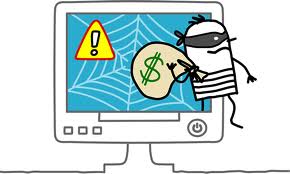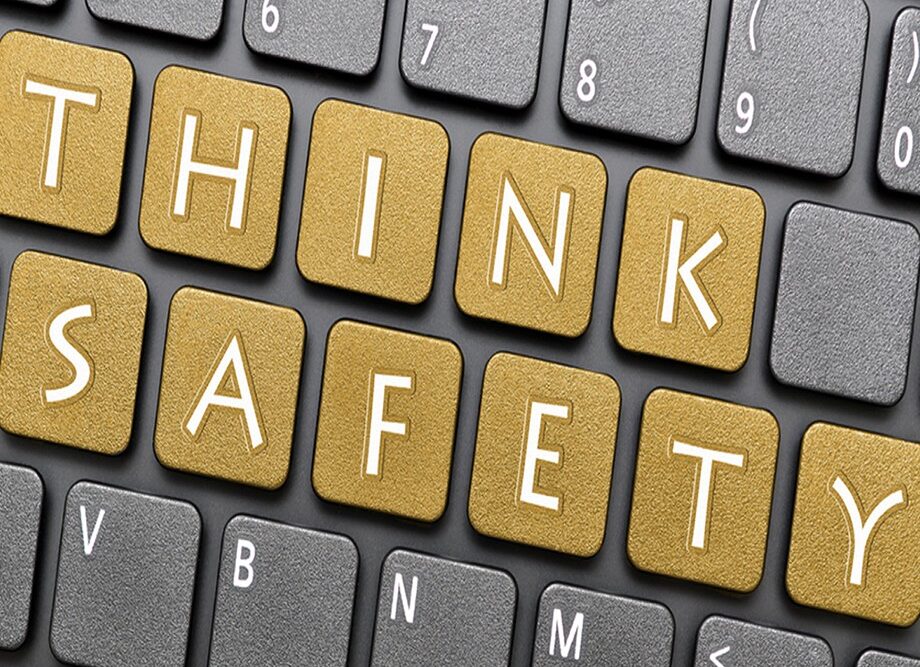
Internet scams have been around ever since the internet first came on to scene. Fraudsters with an internet connection are constantly finding new techniques to con unsuspecting innocent users, all thanks to the internet. In this guide, you’ll learn the various and most popular scams e-crooks use to steal your money and your identity.
The Nigerian Millionaire Widow Scam:
You receive an email from a young Nigerian widow who is in need of desperate help. She has inherited over a million dollars from her dead husband and is offering to give you a significant cut,
If you help her retrieve her money by sending her a few hundred dollars which would cover the legal and administrative fees needed to release her inheritance. Using powerful persuasion techniques and emotions, most people are easily overwhelmed by greed and believe this is the real-deal. This is just one variation of the scam, there are many others using just as powerful persuasive stories to win over your trust. Once you end up wiring the money, don’t be surprised if you never received the promised million dollars. You my friend have been duped!
Preapproved Home Loan Scam:
Despite your horrible credit history, you receive an email stating you are preapproved for $500,000 mortgage loan. All that is required is that you pay an upfront annual fee before the loan could be issued to you. Just think about it, why would any bank be foolish enough to loan you half a million dollars despite your bad credit? Sadly, it’s a scam. Once you pay the so called “up front annual fee” you won’t hear back from them. While most people can easily come to know about the scam just by dubious request for an upfront annual or service fee, some, unlucky folks are stupefied into paying the upfront fee.
You Won the Lottery Scam:</strong>
Do you know a person who doesn’t want to be rich? Probably not, the reality is that every human being desires to be wealthy. Scammers have used this human weakness to their advantage. Perhaps this format of scam is the most common, and it’s likely you’ve received a similar email in the past. You receive an email message stating you have won 2 million dollars in state lottery. Whether you have participated or not, the mere concept of you winning 2 million dollars is enough to cloud your judgment, and that’s where you end up sending fixed amount of money to scam artists.
Public Wifi Hazards:
Avoid using public Wifi services, they may be free, but you may end up paying by having your identity stolen. Always use Wifi encryption software to mask your identity and encrypt your data using data security software.
Phishing and Fake Links:
Perhaps it’s very easy for anyone to fall victim to phishing scams. This type of scam is perhaps the most sinister and damaging. E-crooks usually send you a fake link instructing you to click on that link and to login to your e-banking account. As you enter your username and password in their respective fields, your credentials are being recorded in the background by a key logging software. These fake bank sites seem extremely convincing as the real deal, however, they are not. How can you distinguish fake from the real deal? Simple, make sure the website starts with HTTPS instead of HTTP. If you have any doubts about the validity of the website, contact your bank immediately.
How Do You Stay Safe In Cyberspace?

1. Use strong passwords and update them regularly.
2. Enable two-factor authentication whenever possible.
3. Install and use anti-virus and anti-malware software.
4. Use a virtual private network (VPN) when connecting to public Wi-Fi networks.
5. Avoid clicking on suspicious links or downloading files from unknown sources.
6. Be aware of phishing scams and never share personal information online.
7. Regularly update anti-virus software.
8. Back up important data regularly.
5 C’s Of Cyber Security
1. Confidentiality: Protecting the privacy of confidential information.
2. Integrity: Ensuring the accuracy and completeness of data.
3. Availability: Ensuring the availability of systems and data.
4. Authentication: Verifying the identity of users.
5. Non-repudiation: Ensuring that actions taken by users cannot be denied.
Five Basic Principles Of Cyber Security
1. Prevention: Implementing measures to prevent unauthorized access to systems and data.
2. Detection: Detecting any suspicious activities or attempts to infiltrate systems and data.
3. Response: Taking immediate action to respond to any security incidents.
4. Recovery: Recovering systems and data in the event of a security incident.
5. Education: Educating and training users on cyber security best practices.
Types Of Cyber Security
1. Network Security: Protecting the integrity and confidentiality of data that is stored and transmitted over networks.
2. Application Security: Protecting applications from malicious attacks.
3. Data Security: Protecting data from unauthorized access and manipulation.
4. Identity Management: Managing user identities and access privileges.
5. Endpoint Security: Protecting endpoints from malicious activity.
6. Cloud Security: Protecting cloud-based services and data.
7. Mobile Security: Protecting mobile devices from malicious attacks.
8. Cryptography: Protecting data through the use of encryption and other cryptographic techniques.
9. Network Access Control: Controlling who has access to networks and resources.
10. Physical Security: Protecting physical assets from theft or damage.
Why Do We Need To Protect Cyberspace?
Cyberspace is an integral part of our lives and provides us with access to valuable information, services, and resources. Unfortunately, it is also a target for malicious actors who wish to gain access to our data or disrupt our operations. Cybersecurity is necessary to protect our data, networks, and systems from these threats and ensure the safety of our online activities. By protecting cyberspace, we can ensure that our data and networks remain secure and our online activities remain private.
Safety In Cyberspace
Cybersecurity is the practice of protecting cyberspace from malicious actors and ensuring the safety of our online activities. It involves protecting data, networks, and systems from cyber threats and ensuring that our data and networks remain secure and our online activities remain private.
Data Protection In Cyberspace
Data is protected in cyberspace using a variety of security measures, such as encryption, authentication, access control, and firewalls. Encryption is used to scramble data so that it is unreadable to unauthorized users. Authentication is used to verify the identity of users before granting them access to data. Access control is used to restrict access to data based on the user’s identity and the level of permission granted. Firewalls are used to block unauthorized access to networks and systems.
What Is Right To Privacy In Cyberspace?
Right to privacy in cyberspace is the right to be free from interference or intrusion into one’s personal data or information. This includes the right to keep personal information private and secure, the right to be free from surveillance, and the right to be free from unauthorized access to one’s personal data. It also includes the right to control how one’s personal data is used, shared, and stored. This right is important in protecting individuals from data breaches, identity theft, and other cyber crimes.
Stay Safe From Scams
There are a few steps you can take to stay safe from scams. First, it is important to be aware of potential scams and to be cautious when dealing with unfamiliar people or companies. Second, always be sure to research any company or person before engaging in any transaction with them. Third, be sure to use secure payment methods such as credit cards, PayPal, or other secure payment services. Fourth, never give out personal information such as your Social Security number or bank account information. Finally,
4 C’s Of Online Safety
The 4 C’s of online safety are:
1. Confirm: Always confirm that the website or person you are dealing with is legitimate.
2. Communicate: Communicate with the website or person you are dealing with in a secure manner.
3. Control: Control your personal information and be sure to use strong passwords, two-factor authentication, and other security measures.
4. Care: Carefully read the terms and conditions of any website or service you use.
